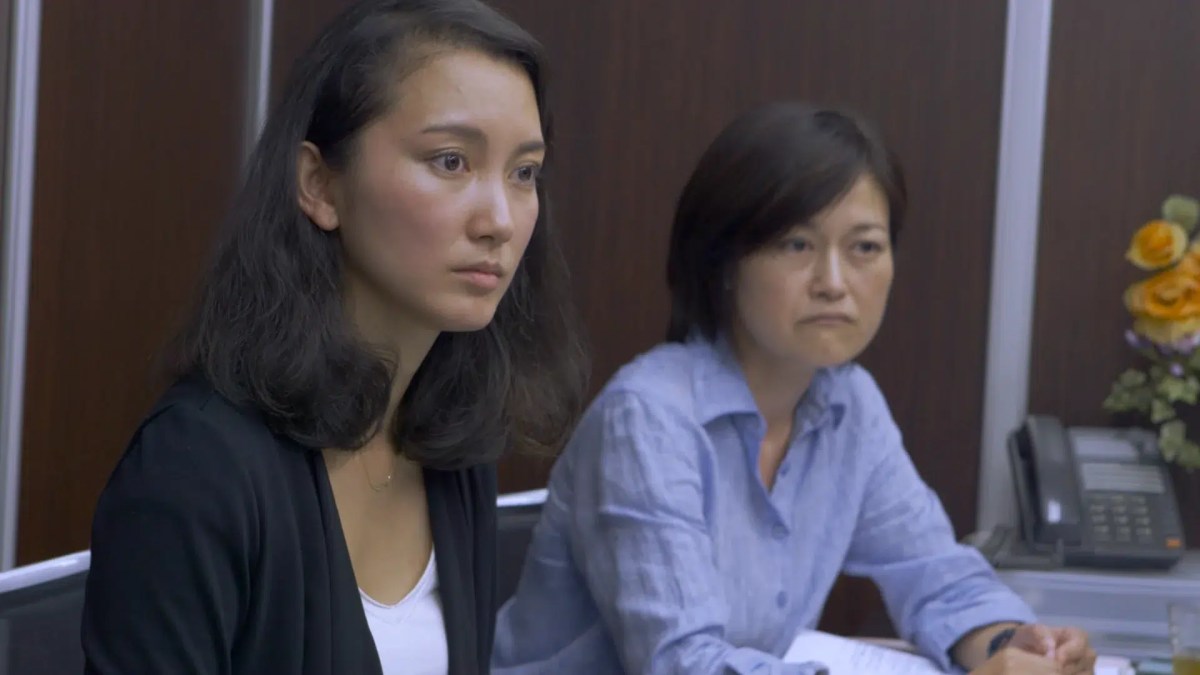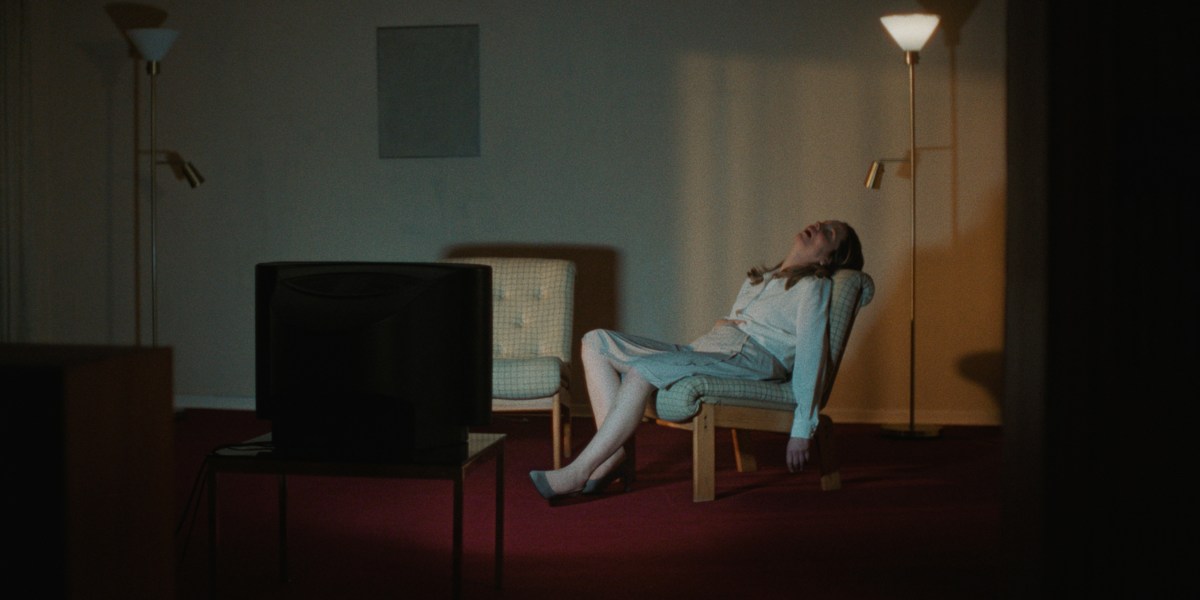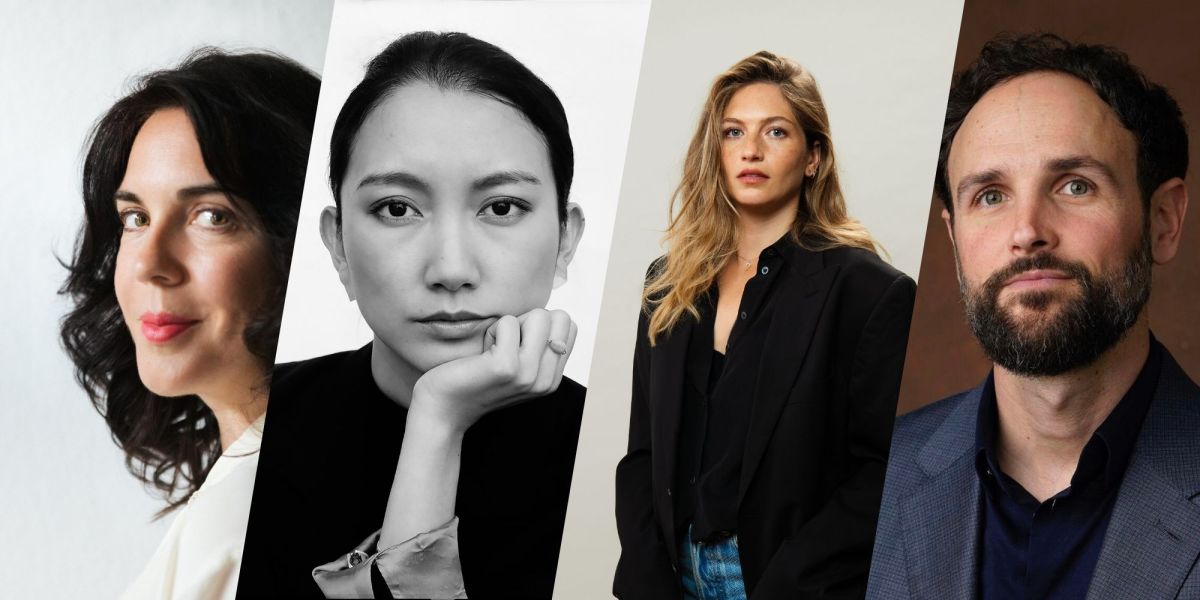The Australian International Documentary Conference (AIDC) is descending upon Melbourne’s ACMI once again, with a full program featuring over 40 sessions and 115 speakers, from major award-winning filmmakers and groundbreaking Australian and international storytellers, to some of the industry’s most successful business insiders.
Notably, three Academy Award-nominated documentary makers will be speaking at AIDC this year: Julian Brave NoiseCat and Emily Kassie, co-directors of the 2025 Academy Award-nominated feature documentary Sugarcane, and Shiori Ito, the director of Black Box Diaries.
AIDC talks

‘We’re really thrilled to be focusing a Spotlight Session on the incredible documentary Sugarcane‘, says AIDC Director Natasha Gadd. ‘It’s one of the most impressive documentaries I’ve seen for a long time. Very deserving of the Oscar nomination.’
Sugarcane is a Canada/USA co-production about a groundbreaking investigation into unmarked graves that were discovered on the grounds of an Indian residential school run by the Catholic Church in Canada. It’s up for a Best Documentary Oscar at the Academy Awards next month.
Julian Brave NoiseCat and Emily Kassie will speak about Sugarcane and the often difficult but necessary exercise of truth-telling on the panel A Cultural Reckoning at 9am on 5 March. In the session, they will talk about ‘why documentary filmmaking is so important to them, why it’s vital to get projects like Sugarcane out into the world, and how the film brought the past into the present with such force’. It’s not to be missed.
Their talk will be followed by Shiori Ito’s, who will speak about her film Black Box Diaries at the panel Lens on the Self at 10.15am on 5 March. Australian journalist Santilla Chingaipe will join her in conversation.
In Black Box Diaries, Ito investigates her own assault by one of Japan’s most high profile journalists, and in so doing exposes a shroud of secrecy hanging over sexual assault in her home country.
‘It’s really brave storytelling, especially putting herself and her own experiences in front of the camera to tell this story and bring awareness,’ says Gadd. ‘And as I understand, unsurprisingly, it still hasn’t found a way to release in Japan.’
Both of these unmissable panels exemplify this year’s theme for AIDC, which is Future Telling: New Horizons in Documentary & Factual Storytelling. Gadd breaks that down to a single question: ‘What is the future that we want to write for ourselves?’
AIDC: future telling

‘We really find ourselves at the precipice of a radically new era,’ she says. ‘I think that’s very much due to the very rapid advancement of technology and AI … particularly for documentary – which is very much predicated on a relationship with truth, authenticity and veracity – how will it be affected?’
On that note, despite AI’s rather controversial presence in the creative arts, it’s not always a negative thing, says Gadd: ‘We want to explore the perils and the possibilities.
‘We know that, for example, AI can help improve the quality of some archive material that might have been damaged, and it can help with audience discoverability via keyword generators,’ she continues.
There are two documentaries that feature the use of generative AI in this year’s AIDC lineup – but, unlike the films that try to sneak in covert uses of time-saving AI tools, these features are upfront about it. The use of AI in Piotr Winiewicz About A Hero, for example, is necessary for its premise to work.
In About A Hero, a local factory worker named Dorem Clery dies under mysterious circumstances, and famed documentarian Werner Herzog travels to Getunkirchenburg to investigate his perplexing death. There’s just one problem: ‘Werner’ is completely AI generated, his dialogue a product of hours of Herzog’s actual documentaries being fed into a generative AI program.
The idea for the documentary was born in response to Herzog’s 2016 statement that in ‘four and a half thousand years’ a computer could not create a film ‘even half as good’ as his. With Herzog’s permission, Winiewicz and his team set about putting that theory to the test.
Gadd is fascinated by the irony of the work: ‘It’s really playing into this kind of weird, meta-hybrid, mind-bending feel.’
One of the key things about documentaries, Gadd says, is that they are ‘not news and current affairs. So they don’t need to be impartial. They can bring a bias. Some can be very fact-driven, while others will follow a personal journey.
‘What we’re filming inside and outside the frame, all of it is a construct anyway. So it’s never just going to be a simulacrum of the truth.’
Winiewicz will speak at the session Herzog in the Machine at 11am on 2 March.
The other documentary using AI is actually a podcast: Evan Ratliff’s Shell Game, an exploratory audio series in which the journalist creates an AI-generated clone of his voice, ‘then proceeds to unleash the clone on telemarketers, scammers, friends, family, his therapist, and himself.’
Gadd found the podcast too fascinating to resist. ‘It’s a head fuck,’ she says. ‘It flirts with the idea of something that’s not quite right’.
Ratliff will speak about the podcast in a session called Will You Ever Regret Creating an AI Clone?, moderated by documentarian Patrick Abboud.
Other highlights of the conference include Academy Award-winner Shane Boris (Hollywoodgate, Fire of Love), SBS’s Marc Fennell, Canadian visual researcher and clearance specialist Elizabeth Klinck, and transmedia storyteller Gabriel Shipton, whose work helped fund the defence of his brother Julian Assange.
AIDC screenings and marketplace
Alongside the talks is the Documented screening program, showcasing the documentaries mentioned above (Sugarcane, Black Box Diaries, About A Hero) and more (The Wolves Always Come at Night, for example), in ACMI’s Cinema 1 & 2. Gadd also recommends the free screenings of shorts curated by The Guardian, all of which respond to the prompt of ‘future telling’.
Creators can also visit the AIDC Marketplace, which supports projects at various stages, including a new Indigenous Creators Pitch and the renowned FACTory International Pitching Forum, a showcase of 15 projects from around the world that will have the chance to pitch to major decision-makers.
The Indigenous Creators Pitch will ‘feature five Aboriginal Torres Strait Islander producers pitching to buyers who are looking for Indigenous-led stories,’ explains Gadd.
In The FACTory, ‘our decision makers are selected across distribution, broadcast, commissions, streamers, funds, sales, and development funds’, says Gadd, ‘with the idea being that we can unlock some business and creative outcomes from those pitching teams, and get their project in development with those buyers.’
There’s also The Showroom, which allows production companies to pitch to international decision-makers like PBS, Channel 4, CBC, Arte France and Sundance, and the Cut to the Chase curated marketplace, which facilitates meetings between filmmakers and buyers after the main conference is over. ‘We usually curate hundreds of those meetings each year,’ says Gadd. It’s a definite must for both emerging and established documentarians.
If you’re just dipping your toes in, or feel like a bit of a documentary outsider, you can grab a day pass and dip in and out of talks and screenings as you wish.
AIDC 2025 takes place from 2-5 March, at ACMI in Melbourne, while Cut to the Chase (and the international marketplace) will be on from 6-7 March, online.For more information, see the AIDC website.





